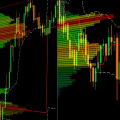Islamic Forex Trading: A Comprehensive Guide to Shariah-Compliant Trading
In today's globalized world, financial markets offer a multitude of investment opportunities. Forex trading, in particular, has gained significant popularity among investors worldwide. However, for devout Muslims, engaging in conventional forex trading may conflict with their religious beliefs due to interest (riba) charges and uncertainty (gharar) involved. Islamic forex trading provides a solution for Muslims seeking to participate in the forex market while adhering to Sharia principles.
In the world of finance, Islamic principles play a vital role for those seeking to align their investments with their religious beliefs. Islamic Forex Trading, also known as Halal Forex Trading, offers a way for Muslim investors to engage in foreign exchange trading while adhering to the principles of Shariah. In this comprehensive guide, we will explore the concept of Islamic Forex Trading, its benefits, trading strategies, misconceptions, the role of Islamic scholars, best practices, and more.
Islamic Forex Trading: Understanding the Principles
Islamic Forex Trading combines the principles of Islamic finance with the dynamic realm of foreign exchange trading. Islamic finance prohibits the earning of interest (riba) and promotes ethical and fair practices in all financial transactions. Forex trading, on the other hand, involves the buying and selling of currencies to profit from fluctuations in their exchange rates.
Islamic Forex Trading ensures compliance with Shariah principles by incorporating specific features and guidelines, providing Muslim investors with opportunities to engage in the global currency markets while respecting their religious beliefs.
Islamic forex trading, also known as halal forex trading, operates within the guidelines of Sharia law. Sharia-compliant financial transactions must adhere to specific principles, such as the avoidance of interest-based activities (riba) and speculative transactions (gharar). Let's delve into the core principles of Islamic forex trading:
1. Elimination of Riba (Interest)
In Islamic finance, the charging or receiving of interest is strictly prohibited. This prohibition arises from the belief that money should be a medium of exchange and not a commodity to generate profit on its own. Islamic forex trading eliminates interest charges commonly associated with conventional forex trading, allowing Muslims to participate without violating their religious beliefs.
2. Avoidance of Gharar (Uncertainty)
Gharar refers to any transaction involving excessive uncertainty or ambiguity. Islamic forex trading discourages speculative activities that involve uncertainty, as it goes against the principles of fair exchange and transparency. Instead, Islamic forex trading focuses on genuine trade-based activities, ensuring that transactions are conducted in a transparent and ethical manner.
3. Ethical Investment
Islamic forex trading promotes ethical investment by encouraging investors to engage in businesses that comply with Islamic values and principles. This approach fosters responsible investment practices and discourages involvement in industries such as gambling, alcohol, or tobacco, which are considered non-compliant with Sharia principles.
Exploring the Mechanisms of Islamic Forex Trading
Islamic forex trading operates within a framework designed to adhere to Islamic principles. It incorporates various mechanisms to ensure compliance while enabling Muslim investors to benefit from forex market opportunities. Let's examine these mechanisms in detail:
1. Swap-Free Accounts (Mudarabah)
To eliminate interest charges, Islamic forex brokers offer swap-free accounts, also known as Islamic accounts. These accounts function based on the principle of mudarabah, where the profits generated from trading activities are shared between the investor and the broker. This arrangement allows Muslim investors to engage in forex trading without violating their religious beliefs.
2. Profit-Sharing (Musharakah)
Another common mechanism in Islamic forex trading is profit-sharing (musharakah). In this arrangement, investors and brokers share profits generated from trades based on a predetermined ratio agreed upon at the outset. This system aligns with Islamic principles by promoting fairness and risk-sharing.
3. Spot Forex Trading
Spot forex trading involves the direct purchase and sale of currencies at the prevailing market rate. This mechanism is widely accepted in Islamic forex trading as it eliminates uncertainty (gharar) and promotes transparency in transactions. By engaging in spot forex trading, Muslim investors can actively participate in the forex market without compromising their religious beliefs.
The Benefits of Islamic Forex Trading
Islamic Forex Trading offers several benefits for Muslim investors:
Ensuring Compliance with Islamic Beliefs: Islamic Forex Trading allows individuals to invest in the forex market without compromising their religious values.
Elimination of Interest (Riba): Interest-based transactions are strictly prohibited in Islamic finance. With Islamic Forex Trading, investors can avoid interest charges and engage in riba-free trading.
Promotion of Ethical and Fair Practices: Islamic finance principles promote transparency, fairness, and accountability. Islamic Forex Trading follows these principles, fostering ethical conduct in the financial markets.
Enhancing Financial Stability and Avoiding Speculative Risks: Islamic Forex Trading encourages long-term investment strategies based on real economic activities, reducing speculative risks and promoting stability.
Islamic Forex Trading Accounts
Islamic Forex Trading accounts, also known as Islamic accounts or swap-free accounts, are designed to comply with Islamic finance principles. These accounts provide Muslim investors with the opportunity to trade in the forex market without engaging in interest-based transactions. Key features of Islamic Forex Trading accounts include:
No Rollover Fees: Instead of earning or paying interest on positions held overnight, Islamic accounts provide an alternative fee structure.
Shariah-Compliant Terms: Islamic accounts ensure that trading terms and conditions align with the principles of Islamic finance.
Compliance Verification: Reputable brokers offer Islamic accounts that are certified as Shariah-compliant by recognized Islamic authorities.
Trading Strategies for Islamic Forex Traders
Islamic Forex Trading involves applying trading strategies that are compliant with Shariah principles. Here are some strategies commonly used by Muslim investors:
Shariah-Compliant Technical Analysis: Islamic Forex Traders can utilize technical analysis tools and indicators within the boundaries of Islamic finance principles. This involves analyzing price patterns, trends, and other technical indicators to make informed trading decisions.
Fundamental Analysis: Fundamental analysis focuses on evaluating economic indicators, geopolitical events, and news that impact currency values. Islamic Forex Traders can use this analysis to identify potential trading opportunities while ensuring compliance with ethical guidelines.
Risk Management Techniques: Islamic Forex Traders employ risk management strategies to mitigate potential losses. These strategies include setting stop-loss orders, diversifying portfolios, and practicing disciplined trading.
Common Misconceptions about Islamic Forex Trading
Despite the growing popularity of Islamic Forex Trading, there are several misconceptions surrounding this form of trading. Let's address some of the common misconceptions:
Islamic Forex Trading is not Permissible: Islamic Forex Trading is permissible as long as it adheres to Shariah principles. It provides Muslim investors with the opportunity to engage in the forex market while complying with their religious beliefs.
Islamic Forex Trading is Less Profitable: Islamic Forex Trading can be profitable like any other form of forex trading. Success lies in implementing effective trading strategies, conducting thorough research, and managing risks.
Limitations in Trading Opportunities: Islamic Forex Trading does not impose significant limitations on trading opportunities. Muslim investors can access a wide range of currency pairs and participate in global forex markets.
Complex Compliance Procedures: While Islamic Forex Trading requires adherence to specific guidelines, reputable brokers offer user-friendly platforms that simplify compliance procedures, making it accessible to Muslim investors.
The Role of Islamic Scholars in Forex Trading
Islamic scholars play a crucial role in guiding Muslim investors in matters of Islamic finance and Forex Trading. Seeking advice and opinions from scholars helps ensure compliance with Shariah principles. Their involvement includes:
Importance of Seeking Guidance: Islamic scholars possess deep knowledge of Islamic finance and can provide guidance on the permissibility and compliance of forex trading activities.
Scholarly Opinions: Various scholars have expressed their views on forex trading, issuing fatwas (religious rulings) and opinions that help shape Islamic Forex Trading practices.
Fatwas and Rulings: Scholars issue fatwas that clarify the permissibility of specific trading practices within the framework of Islamic finance principles.
Best Practices for Islamic Forex Trading
To engage in Islamic Forex Trading successfully, it is essential to follow best practices:
Adhering to Principles of Transparency and Accountability: Maintain clear and transparent records of all transactions and ensure compliance with Shariah principles.
Selecting Reputable Brokers: Choose brokers who offer dedicated Islamic accounts certified as Shariah-compliant by recognized authorities.
Avoiding Prohibited Activities: Refrain from engaging in activities such as excessive speculation, investing in prohibited industries, or trading with excessive leverage.
Is Islamic forex trading permissible in Islam?
Yes, Islamic forex trading is permissible in Islam as long as it adheres to the principles of Sharia law. By eliminating interest charges and speculative activities, Islamic forex trading provides a halal alternative for Muslim investors seeking to participate in the forex market.
How do Islamic forex accounts work?
Islamic forex accounts, also known as swap-free accounts, operate on the basis of profit-sharing or mudarabah. Instead of charging interest, Islamic forex brokers share the profits generated from trades with their clients, adhering to Sharia principles.
Are there any limitations in Islamic forex trading?
Islamic forex trading imposes certain limitations to ensure compliance with Islamic principles. For example, trading in currencies of high volatility or engaging in speculative activities is discouraged. Additionally, investments in industries that are non-compliant with Sharia principles, such as gambling or alcohol, are prohibited.
Can non-Muslims participate in Islamic forex trading?
Yes, non-Muslims can participate in Islamic forex trading. The principles of Islamic finance, such as the elimination of interest charges and adherence to ethical investment practices, can be appealing to investors from various backgrounds.
Are there specific Islamic forex brokers?
Yes, there are specific Islamic forex brokers that cater to Muslim investors seeking Sharia-compliant trading accounts. These brokers offer swap-free accounts and adhere to the principles of Islamic finance, providing a halal trading environment.
How can one determine if a forex broker is truly Islamic?
To determine if a forex broker is truly Islamic, one should assess if they offer swap-free accounts, operate based on profit-sharing principles, and comply with the guidelines set by reputable Islamic financial authorities. Thorough research and due diligence are essential when selecting an Islamic forex broker.
Is technical analysis allowed in Islamic forex trading?
Yes, technical analysis is allowed in Islamic forex trading as long as it doesn't involve prohibited elements.
What are the key differences between Islamic and conventional forex trading accounts?
Islamic forex trading accounts eliminate interest (riba) and follow Shariah-compliant guidelines, whereas conventional accounts may involve interest charges.
Conclusion
Islamic forex trading offers a halal alternative for Muslim investors who wish to participate in the forex market while adhering to Sharia principles. By eliminating interest charges and speculative activities, Islamic forex trading aligns with Islamic values and provides ethical investment opportunities. Muslim investors can engage in spot forex trading, utilize swap-free accounts, and benefit from profit-sharing arrangements. With the increasing demand for Sharia-compliant investment options, Islamic forex trading serves as a viable avenue for Muslim individuals and communities seeking financial growth within the bounds of their faith.
Islamic Forex Trading provides Muslim investors with a pathway to engage in the forex market while adhering to the principles of Islamic finance. By eliminating interest-based transactions and promoting ethical practices, Islamic Forex Trading offers a unique opportunity to align financial goals with religious beliefs. By following the principles and strategies outlined in this guide, Muslim investors can navigate the forex market confidently and achieve financial stability.












Leave Reply